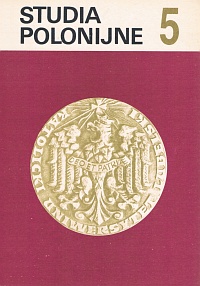Sociological aspects of leadership in a Polish ethnical group
Main Article Content
Abstract
In a sociological meaning term leadership denotes those positions or institutions in a given community the task of which is: to fix the aims of a given social community, to set up structures to realize all these aims, control over social roles of individuals and tasks of institutions. Leaders and leadership can be institutional and informal, or according to K. Lewin democratic, susceptible to manipulation, autocratic or according to M. Weber charismatic, traditional, legal (depending on legitimacy of sources of power).
Designation of a notion „ethnical group” is twofold. This term can denote an ethnical group in general as a community, latent whole based on identification of people regarding the same origin, efforts to maintain or develop homeland’s culture, ambitions to keep or attain a high status for people of a given nationality in the social structure of the country they actually live. The other meaning of „ethnical group” refers to various unions, associations and concrete ethnical circles.
The life of the first generation of Polish emigrants in last decades of the 19th century and at the beginning of the 20th century was focused on local parishes environment with a priest as a functional leader of his parish, ad he also initiated, carried on and ad coordinated or patronized (in most of emigrational circles) other forms of activity. Was a „natural” leader in a whole given Polish emigrational community. Many of them patronized the activity of Polish emigrants in a wider region. Together with some outstanding individuals from Polish intelligentsia they composed the first group of leaders representing the whole Polish ethnical group in a given country.
However, Polish emigrational circles underwent certain changes in the course of historical development, forms of leadership were also changing. /
Changes of forms of leadership can be presented in a certain scheme - model, comprising the directions of changes, namely, from a model of an individual leader to a group of leaders or whole institutions, or organizations with coordinating aims, from a local leader to a more than a local one, from a leader in general to specialized in a certain sphere of activity (experts), from a personal leader with leadership based on his personal authority to a leader highly qualified specialist, from an autocratic to a democratic leader.
These changes have been caused by many factors, the most important of them being: socio-economical rise particularly of the third and fourth generation of Polish emigrants; dispersal of Polish ethnical environment; disappearance of comparative isolation and penetration of Polish young generations into the life of the society they actually live in; decline of some types of organizations and unions of Polish emigrants» demising number of their members or reduction of functions; development of the so called publicity as a new organizational form in which the life of ethnical group can be seen in its structural shape; individual participation in culture becoming more and more universal; former welfare activity undergoing a process of personalization.

